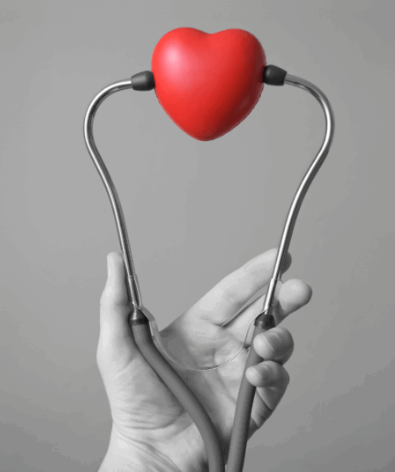
Healing from Guilt and Regret: 3 Ways to Find Peace
Hey there,
This past weekend, I had the opportunity to connect with some incredible people at the release event for my new book. It was a beautiful gathering, and the conversations we had were filled with vulnerability and depth. During our Q&A session, many of you shared heartfelt questions, particularly about grief, guilt, and regret.
Grief, as we all know, is not a simple emotion to navigate. Some of us face anticipatory grief, where we mourn a loss that we know is coming, while others struggle with feelings of unresolved grief because life simply got in the way. Then, there’s the fear that grief might strike again, or the temptation to comfort ourselves in unhealthy ways when faced with emotional pain.
Among all the questions, one that resonated deeply was about how to deal with the guilt that often follows losing someone. Whether it’s the words we never said, the unresolved conflicts, or simply not having had enough time to say goodbye, these emotions can be tough to face. While I can’t change your circumstances, I want to share a few practices that might help ease the weight of guilt and regret you’re carrying.
3 Ways to Heal from Guilt and Regret
1. Focus on the Present
Regret tends to be rooted in the past. When we’re overwhelmed by guilt, we often get stuck replaying moments that can never be undone. This is particularly true when we think about our final interactions with someone who has passed. We may beat ourselves up for missed opportunities or things we didn’t do, and we often find ourselves trapped in these endless cycles of regret.
While it’s hard to break free from these feelings, it’s crucial to accept that the past is beyond our control. We can’t change it. I had a similar experience with my father, who wanted to host a Zoom celebration before he passed. At the time, I wasn’t ready to take part in that idea, and it’s something I still regret. However, dwelling on that moment does not help me. What matters now is acknowledging my feelings and focusing on the present. I can’t change what happened, but I can take care of myself today.
Instead of getting stuck in negative thought patterns, make an effort to ground yourself in the present. Acknowledge your emotions, but be gentle with yourself. Remember, you can’t change what’s behind you, but you can nurture yourself in the here and now.
2. Let Your Emotions Out
The next healing step is expressing what’s inside. Regret often stems from unspoken words, and those unsaid things can weigh heavily on us. If you catch yourself replaying things you wish you’d said, it might be time to give those thoughts a voice.
For some, speaking directly to a loved one—even if they’re no longer here—can offer a sense of connection. Personally, I believe that my father can still hear me, and I talk to him often, which helps me feel more at peace.
Another powerful way to express yourself is by writing a letter. Write everything you wish you could have said, and then read it aloud or keep it in a special place. This exercise isn’t necessarily about finding closure, but rather about honoring your relationship and the emotions that are still present.
Another key part of this healing journey is seeking support. Grief, especially when mixed with guilt, can feel isolating, but finding someone to help guide you—whether it’s a therapist, a close friend, or a support group—can make all the difference. They can act as a beacon of light, helping you find your way through the darkness.
3. Practice Compassion for Yourself
The third practice I want to highlight is one that’s crucial in this process: stop being so hard on yourself. Perfection is not required for healing, and being overly critical of yourself will only hinder your progress. It’s essential to embrace self-compassion and accept that, in challenging circumstances, you did the best you could.
When you feel that inner voice of doubt creeping in, remind yourself: “I did the best I could, and that’s enough.” Your heart is still healing, and showing yourself kindness is an important part of that process. When critical thoughts arise, treat yourself with the same love and patience you would offer to a dear friend. You deserve to be kind to yourself, especially in times of difficulty.
It’s easy to fall into the trap of self-criticism, particularly when we feel like we’ve made mistakes or missed opportunities. But what if, instead of criticizing yourself, you chose compassion? What if you met your imperfections with understanding rather than judgment? That’s the path to healing and peace.
The Power of Grace
It’s completely normal to feel regret and guilt after losing someone, but the remedy to these feelings is always grace. When I find myself being too hard on myself, I look at an old photo of myself as a child. That young girl, full of excitement and innocence, is still part of me today. She needs my compassion, just as much as I need to give it to myself.
When I falter or miss the mark, I remind myself that she, too, would want grace—not judgment. She would want to be loved and forgiven for her imperfections. Extending that same grace to myself is a profound step in the healing process.
As you navigate your own path through grief, guilt, and regret, remember that healing doesn’t mean erasing the past—it’s about being kinder to yourself in the present. It’s okay to grieve, and it’s okay to feel regret. But with radical compassion, self-expression, and living in the now, you’ll find the peace you seek and the strength to move forward.






